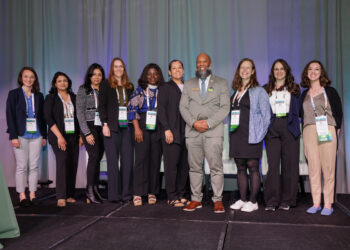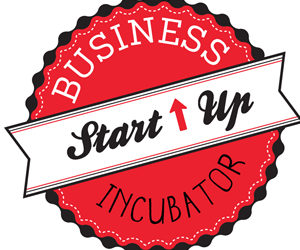Last month we talked about the great advice we’ve received along the way in our careers. But great advice is only as good as our willingness to consider it, adapt it as needed, and incorporate it into our perspectives and, ultimately, our actions. Great advice has the capacity to help us evolve! 
This month we broadened the question a bit but also asked the chefs to focus their reflection on 2014. What did you learn in 2014?
And, as always, we’re asking you too! What did you learn, relearn, or re-enforce in 2014? As an add-on (that we didn’t ask the chefs) how has it, or might it, change your perspective or your actions?
Kent Anderson: This year, I learned how important leadership can be for an organization. This occurred across a number of experiences, including my own experience leading an organization for more than four years and then departing to start a new job, putting that leadership experience in a frame.
Being a fairly observant person who was privileged to get a seat at various publishing tables this past year, I experienced leaders of all calibers, from the selfish and petty to the visionary and magnanimous. In each case, the demeanor and approach of the leaders had a profound effect on morale, behaviors, and achievements. Those organizations with small-minded leaders stayed small and tightly wound, almost defensive. Organizations with more confident and expansive leadership behaved accordingly, with vision, patience, and integrity.
There was one other layer where differences occurred, and that was in passion for the work. Those leaders who were on the less admirable part of the spectrum had little passion for the work or belief in its value, while those on the more admirable portion felt an abiding passion for the work and what they could accomplish for their people. That created a virtuous cycle, as the good leaders attracted better people, got more from them, and subsequently came closer to achieving their lofty goals.
So that’s my lesson for 2014 – good leadership creates a virtuous cycle for an organization, while poor leadership creates a vicious cycle. And that’s why it’s so important. One style races down a pathway to success while the other trods a road to penury.
Rick Anderson: One of the important things I learned this year was the extraordinary power (for me) of daily, handwritten, prioritized to-do lists. Not only do they work better than any other method I’ve tried for keeping myself focused on the right tasks and managing my time, but they also provide the surprisingly deep and visceral pleasure of crossing items off and, eventually, balling up the piece of paper on which they’re written and throwing it in the trash. Sometimes I even brag on Facebook about having done so.
Joe Esposito: This is the year that I fully began to appreciate what data analysis could mean for publishing. This has been building up for years (for me), but I had seen so many examples of mechanical data collection that led nowhere that I was a bit skeptical. What changed my perspective was getting to know Sciencescape and seeing what could be done with sophisticated citation analysis. SS subsequently asked me to join their Board, so now I am earning while I am learning.
David Crotty: 2014 was a busy and challenging year, and I learned many things. I learned that the Global Entry program is probably the best time-saving investment you can make if you travel as much as I do. I learned the practical lesson of always checking the hotel room safe for your car keys before checking out and heading to the airport. I learned that there’s a South Korean superstition that you can die if you sleep in a closed room with an electric fan on. I learned a lot about Legos and am now up to date on the current state of the rules of freeze tag.
Professionally, the most important lessons that I learned revolve around dipping my toes into the policy sphere, particularly interacting with the US government as part of the group building CHORUS. A little under 4 years ago, I moved from a small university press (around 50 employees) to the largest university press on earth (around 5,000 employees). The sheer scale of the enterprise was daunting, and it took most of my first year to figure out the complexities of how to get things done in such a large and (seemingly) ponderous system.
Now that I’ve seen how the government works, I’ve come to appreciate the remarkable efficiency of the private sphere. In February 2013, the White House released their memo on public access to research results. Nearly two years later, only one of the 20-odd funding agencies involved has released an actual policy to answer that memo. Meanwhile, in that time, a group of publishers came together and built a functioning system to meet the memo’s needs, one that now covers thousands of journals and is tracking tens of thousands of articles. It’s not that the government has been negligent in getting this done, it’s just that it takes the government a really long time to do anything. There are so many roadblocks, so many regulations, and so many conflicting agendas requiring so many compromises that it’s remarkable that the government is ever able to do anything at all.
In academia, we tend to have an inherent bias against business and the corporate realm. But if we want rapid progress and quick implementation of the latest technologies, it’s clearly the most efficient path. If you want government to intervene and implement change, you may be waiting a long time and end up with a watered down solution. But if you can drive that change by creating a business opportunity, you can get your needs met a lot faster.
Phill Jones: I’m rapidly learning that each new ‘ask the chefs’ question has its own unique challenge to it. The problem that I’ve had with this month’s question is trying to decide what to focus on. Having changed jobs twice in the past 18 months, I’ve enjoyed having a series of new ideas and challenges to think about.
My new job has given me the opportunity to learn a lot more about the ideas and trends that are driving innovation in scholarly communication, from the funder mandates that are changing the nature of the scholarly record, to changing researcher demographics and how the shift in economic power from reader to author is affecting how publishers do business. I’ve learned a huge amount from (and about 😉 ) the Chefs of course, even in the short time since I was invited to join the Scholarly Kitchen. Joining the Kitchen has enabled me to really take a deeper dive into some of these issues and I’m tremendously grateful for the opportunity to do so.
Alice Meadows: It’s difficult to pick out just one learning point from 2014 – or any other year come to that. But I’d have to say that this year’s best lesson for me is an obvious one – that the key to success is all about the team you work with. In late 2013, for the first time in my career, I found myself in the position of building a new team from scratch, filling each role myself rather than either inheriting someone else’s team or pulling a new team together from a group of disparate incumbents. My current, handpicked gang of four bring very different experiences, styles, and skills to their roles as well as a huge amount of dedication to doing a good job. And it has really worked on all levels – professional and personal; organizational, team, and individual. Together we have achieved more in a year than I would ever have thought possible and we’ve all learned a lot in the process, as well as having a lot of fun. I’ve worked in and led many teams over the years, but my experience this year has shown me that there is nothing to compare with the joy of working with a group of hard-working, smart, interesting and engaged individuals all focused on a set of shared goals.
Judy Luther: 2014 was a turning point for scholarly publishing as stakeholders in all sectors grappled with how to adapt to changes in their environment. We have moved through the period of transitioning print to digital and have begun the process of transforming the research output.
Following a watershed year for open access in 2013 almost all publishers of funded research offer an OA journal. There are an increasing number of colors of OA between Green (delayed access) and Gold (author pays for immediate access). While all OA journals are free to read and download, some gold OA still involves a transfer of the rights to the publishers rather than leaving copyright with the author.
Under pressure from government and private funders, academic research institutions are seeking to showcase their investment in research in ways that are meaningful to society. The journal article has been an efficient vehicle for communicating to one’s peers, however, it is not effective in reaching a broader audience. The content needs to be more accessible and presented in different media to convey its true value.
With budget constraints and a growing body of OA literature, libraries are exploring new roles that involve them more closely with the scholar’s work. This may be campus based publishing, managing repositories for unique collections or supporting faculty preserving the components of the research process such as datasets. They are frequently engaged in growing conversations about altmetrics and new ways to measure the impact of the work produced by those at the university – from graduate students to scholars.
Ann Michael: As the only one that gets to reflect on everyone else’s answers, it’s always fun to see the diversity of topics that the questions elicit. I’d definitely like to +1 both handwritten “to do” lists (Rick) and Global Entry (David). I’d also like to acknowledge what I believe might be the Scholarly Kitchen’s first publication of an emoticon within a post (way to go, Phill!).
As for me, there is one lesson that I re-learn and have reinforced every year, and 2014 was no exception. Attitude is everything!
Discussion
1 Thought on "Ask The Chefs: What Did You Learn in 2014?"
David Crotty’s point about the slowness of the US Public Access program is worth exploring a bit. There are several reasons why Public Access is taking so long to emerge.
First, some agencies do not want to do it. They see their job as funding research, not collecting and publishing manuscripts. Second, there is no new money for Public Access so some existing programs in each agency have to be robbed and these are hard decisions to make, especially without Congressional authorization. Third, most agencies will probably have to go through rule making to implement their Public Access program, which is a difficult and expensive process, involving lots of lawyers. There is even some question as to whether there is statutory authority for these new regulations. The one agency that has moved quickly, the Energy Department, has been able to do so in part because it claims it does not need a new rule making.
David C. is quite right that a new program like this takes a great many decisions, at many different levels, all narrowly constrained by law and regulation. In a novel case like Public Access, just who makes which decisions is itself a time consuming issue. So it is true that the Federal government cannot be nimble. It can, however, still be innovative, which is where CHORUS fits in. In fact the government slowness has given CHORUS the time it needed to become real and potentially useful. US Public Access is by far the biggest open access effort in the world. What form it finally takes remains to be seen, so 2015 could be a very interesting year for OA.



